An Oversight Panel and three Working Groups (Social Inclusion, Economic Inclusion, and Diagnosis – Supports – Services) provided leadership for this assessment.
Our Assessment and Scientific Affairs Committee appointed Dr. Lonnie Zwaigenbaum and, with his guidance, selected the members of the Oversight Panel and Working Groups. We ensured that Autistic people and parents were in leadership positions on the Oversight Panel and Working Groups, setting the direction for the assessment and participating in decision making. They were identified through an open call to stakeholders.
The selection criteria were based on expertise in various fields, credibility, and diversity. Diversity included, amongst other things, gender, age, ethnicity, and regional representation.
The Oversight Panel will worked with the Working Groups to ensure that the autism assessment would be based on a comprehensive review of current and emerging evidence by analyzing trends, best practices, and existing policies in Canada and across the globe.
Meet the Members:
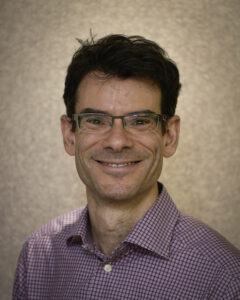 |
Dr. Lonnie Zwaigenbaum, MD, FCAHS Chair, Oversight Panel Dr. Lonnie Zwaigenbaum is the Edmonton Zone Clinical Department Head for Child Health with Alberta Health Services and Professor in the Department of Pediatrics at the University of Alberta. He is also a Clinician Scientist supported by the Stollery Children’s Hospital Foundation Chair in Autism and a fellow of the Canadian Academy of Health Sciences. His research focuses on improving diagnosis, factors influencing development and outcomes, as well as health care and lived experience related to autism. |
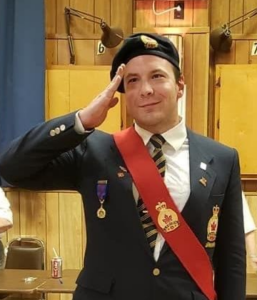 |
Mr. Aaron Bouma Vice Chair, Oversight Panel Mr. Aaron Bouma is an autistic adult who was diagnosed with autism at age three and Asperger’s at age 12. A military historian, entrepreneur, and political activist, Mr. Bouma owns a business where he builds military models and furniture from scratch and delivers military history themed presentations in schools. As an avid networker and community activist, Mr. Bouma believes the input of those with lived experience as autistic is imperative to the creation of any governmental policies surrounding autistic people. |
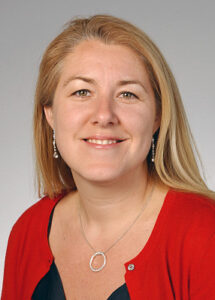 |
Dr. Mélanie Couture erg. OTR. Ph.D. Vice Chair, Oversight Panel Dr. Mélanie Couture is a Full Professor for the School of Rehabilitation, Faculty of Medicine and Health Sciences at Université de Sherbrooke. She is an Occupational Therapist who has been conducting research on autism since 2005 when she started her postdoctoral training at the Autism Clinic of the Montréal Children’s Hospital and McGill University. Dr. Couture initially investigated the sensori-motor features of young children being diagnosed and its impact on functional independence. She then pursued projects on surveillance and early screening in addition to early intervention as coaching for parents. More recently she completed a large study on the social participation of autistic adults including a provincial survey, interviews with autistic adults and parents, and focus groups with clinicians and community organizations. She is currently conducting research on autistic women’s identity development, housing needs of autistic adults, and on a specific model of employment support. |
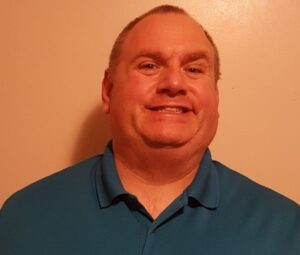 |
Mr. John “Jackie” Barrett Vice Chair, Economic Inclusion Mr. John “Jackie” Barrett is an autistic adult and accomplished Canadian Special Olympics athlete. Mr. Barrett was diagnosed as autistic, as well as with a speech impairment and a learning disability at age six. He holds a Bachelor of Commerce degree from Saint Mary’s University and a Programmer Analyst and Internet Solutions Developer Diploma from CDI College. Mr. Barrett joined the Special Olympics at age 13, competing as an athlete from 1987 to 2015. He represented Canada as a Powerlifter at the 1999, 2007, 2011, and 2015 Special Olympics World Games. Earlier this year, as a thirteen-time Special Olympics World Games Gold Medallist, he was inducted into Canada’s Sports Hall of Fame. He understands what it is like to be autistic and is eager to support by providing his perspective on the creation of policies relating to autistic people. |
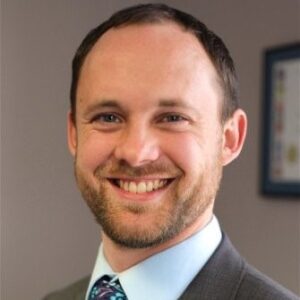 |
Mr. Mark Chapeskie Mr. Mark Chapeskie is a father to two young sons who are autistic. He has volunteered with Quickstart Autism and chairs the Autism Family Advisory Committee at the Children’s Hospital of Eastern Ontario. He has received parent training in the Early Start Denver Model, Florida State Autism Navigator Program, and Hanen’s Four Stages of Early Communication. In his professional life, he is Director of Programs at Electricity Human Resources Canada and has managed research programs to develop national occupational standards and associated labour market intelligence. He has worked overseas in east Asia and sub-Saharan Africa. Mr. Chapeskie holds a BA in Government from St. Lawrence University and an MA in Human Security and Peacebuilding from Royal Roads University. |
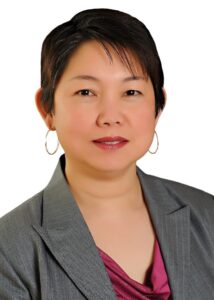 |
Ms. Shirley Chua-Tan Vice Chair, Social Inclusion Ms. Shirley Chua-Tan is a mother of a functional, non-verbal 30-year-old autistic son who is a very accomplished athlete. Ms. Chua-Tan has written a book about her experience as mother of an international medalist and first special needs athlete from the Yukon to qualify for two seasonal sports (skiing and swimming) at the Special Olympic World Games. She is a successful entrepreneur, developer and real estate agent. Ms. Chua-Tan is the former Vice President and a current member of Autism Yukon. She is heavily involved in several volunteer and non-profit efforts. As a true advocate for autistics and parents of autistic children, Ms. Chua-Tan understands the challenges that parents of autistics face, particularly with school systems and adult services. She is currently conducting motivational workshops to share the power of goal setting and of hope. |
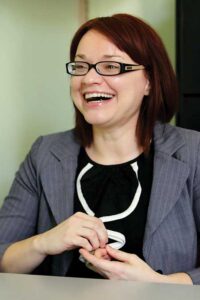 |
Dr. Tara Flanagan, Ph.D. Chair, Social Inclusion Dr. Tara Flanagan is the Director of SPARC (Social Policy, Advocacy, Research, Community), a research group comprised of graduate students from diverse backgrounds with an array of strengths and interests. SPARC’s mandate is to promote social inclusion among individuals with disabilities by emphasizing self-determination, community, and a shared responsibility for successful outcomes. Dr. Flanagan’s scholarly interests and research grants are in the areas of social inclusion, social policy, transition from school to the community, self-determination, and quality of life among individuals with various types of disabilities and among other equity-seeking groups. |
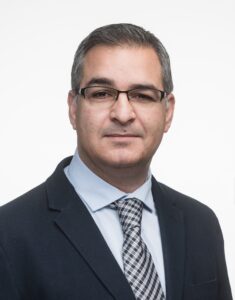 |
Dr. Stelios Georgiades, Ph.D. Vice Chair, Diagnosis – Supports – Services Dr. Stelios Georgiades is an Associate Professor in the Department of Psychiatry and Behavioural Neurosciences and a Scientist at the Offord Centre for Child Studies at McMaster University. His research program investigates the factors influencing developmental trajectories of autistic children and youth. The overarching objective of this research is to generate new knowledge that will lead to more precise, evidence-based diagnostics and interventions for autism. Dr. Georgiades is the Founder and Co-Director of the McMaster Autism Research Team (MacART), an interdisciplinary collaborative aiming to advance autism care through meaningful research. |
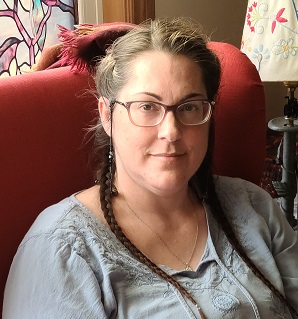 |
Ms. ShanEda Lumb Vice Chair, Diagnosis – Supports – Services Diagnosed at age 40, Ms. ShanEda Lumb is an autistic adult and a mother of two grown autistic children. For 20 years, she has worked in child welfare and education as a certified Education Assistant, and is currently pursuing a degree in Disability Studies from Ryerson University. Ms. Lumb is interested in autism advocacy and runs several autism support groups online including a friendship network, a parenting resource/support group, and an autistic women’s group. Ms. Lumb believes that women and girls with autism are an underserved autistic population and that autistic participation in research and programming is especially important to building better services and programmes and a better future for autistic people. |
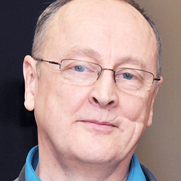 |
Dr. Laurent Mottron MD, Ph.D., FCAHS Dr. Laurent Mottron, MD, Ph.D. is a Full Professor in the Department of Psychiatry and Addictology, and the M&R Gosselin research chair on cognitive neuroscience of autism at the University of Montréal. He is a clinical researcher specializing in the cognitive aspects of autism. In addition to research and clinical activity, he now directs the cognition axis of the Transforming Autism Care Consortium, the Québec provincial scientific network on autism research. The integration of adult autistics into its research team, its books and its public interventions have contributed to reducing discrimination against adults at the scientific and societal level. His recent work focuses on phenotype heterogeneity, early intervention based on autistic strengths, and influence of trivialisation of autism diagnosis on the ability to obtain research results. |
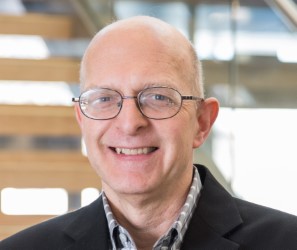 |
Dr. David Nicholas, Ph.D., RSW Chair, Economic Inclusion Dr. David Nicholas is a Professor and Associate Dean Research and Partnerships in the Faculty of Social Work at the University of Calgary. His work has focused on inclusive employment and engagement in community and societal spaces. He is the author of over 160 peer-reviewed publications, focusing on wellbeing in areas of disability and chronic health issues including autism. Other areas of focus include employment access, as well as quality of life and supports for individuals and families. Dr. Nicholas leads the Vocational Abilities Innovation Lab at the University of Calgary, which advances capacity in autism and employment. |
 |
Dr. Keiko Shikako-Thomas, Ph.D., OT Chair, Diagnosis – Supports – Services Dr. Keiko Shikako-Thomas is a Canada Research Chair in Childhood Disabilities: Participation and Knowledge Translation. She is an Associate Professor at the School of Physical and Occupational Therapy at McGill University. Her research focuses on the promotion of healthy living and the human rights of children with disabilities, and knowledge translation science and practice. Her research program adopts a participatory approach to engage different stakeholders, including policymakers, children and their families in finding solutions to change the environments, informing policy making and promoting the participation of children with disabilities in different life roles and activities. |
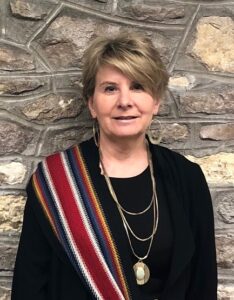 |
Dr. Caroline Tait, Ph.D. Dr. Caroline Tait is a Medical Anthropologist with research interests in Indigenous health, social justice and the challenges faced by marginalized women. She earned her MA at the University of California (Berkeley), and her Ph.D. at McGill University. Dr. Tait has been a Fulbright Scholar and Visiting Fellow at Harvard, and completed a postdoctoral fellowship at McGill. In 2004, Dr. Tait returned to her home province of Saskatchewan to join the Indigenous Peoples’ Health Research Centre—a collaborative initiative involving the First Nations University of Canada, the University of Regina, and the University of Saskatchewan. In 2012, Dr. Tait became a member of the Faculty at the Department of Psychiatry at the University of Saskatchewan. |
